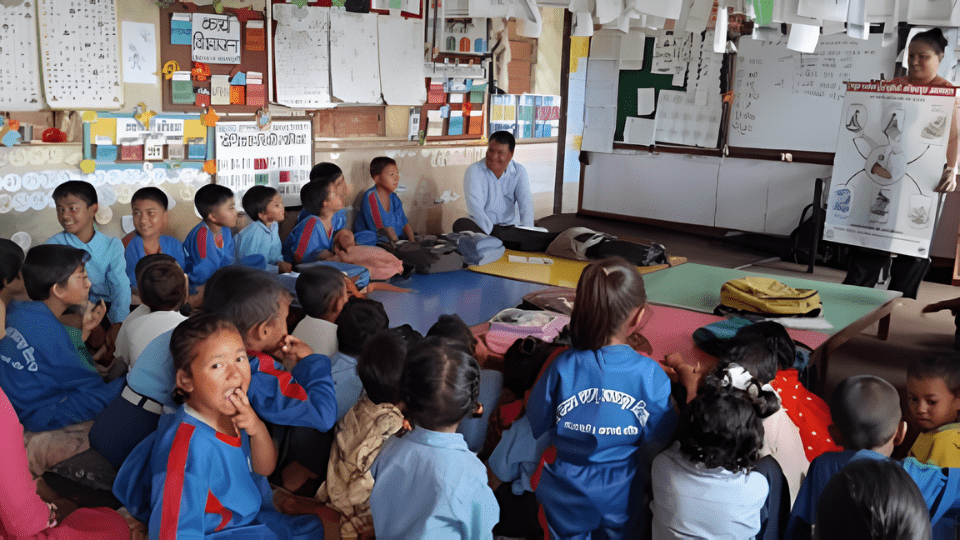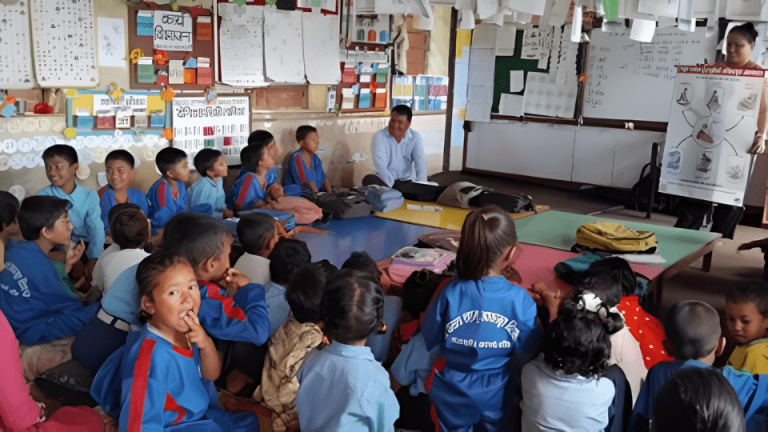Projects
Community Transformation Project (CTP) West Rukum
Project Duration:
2021 1st July to 31 June 2026
Funding Partner :
INFA – International Nepal Fellowship, Australia
Working Area:
Aathbiskot Municipality Ward no. 1, 2, & 3 in Rukum West District

Project Summary
Community Transformation Project in West Rukum project is implemented in Aathbiskot Municipality ward no. 1, 2, & 3 of Rukum West District, Karnali province no. 6.
Project Goal: “Improved health status and basic livelihoods of poor and marginalized ethnic people and sustained these improvements in the project areas of Shanti Nepal”.
The objectives/outcomes of the project are given below:
Outcome 1: Improved health behaviors of the community people to prevent diseases and promote health.
Outcome 2: Improved access to basic sanitation and hygiene facilities and safe drinking water.
Outcome 3: Improved access to essential health services.
Outcome 4: Improved food security for the poorest families in the communities.
Target Groups: The target groups of CTP project as direct beneficiaries are as follows:
a) Healthy mothers’ groups
b) Community development groups
c) Cluster Development Committees (Tole Bikash Committees)
d) Ward WaSHCC Committees,
e) School Management Committees
f) Health Facility Operation Management Committees (HFOMC)
Project event:
Birthing Centre Opening Ceremony
In coordination with local government (Aathbiskot Municipality, Ward Office, Nagar Hospital, and District Hospital) birthing Centre opening ceremony was organized on 8th January 2023. Although the birthing Centre’ own building was available, inauguration program was organized at the building of Basic Health Service Centre in Ward no. 1 Kheta.
The Chief Guest, Mayor of Aathbiskot Municipality, Ravi K.C inaugurated the birthing Centre by lightening the Candles and by cutting off two folded Ribbons. Other stakeholders, from Nagar hospital, district hospital, Ward Office, Shanti Nepal and political party representatives participated during the program.
Jwalamukhi Total Sanitation Project (JTSP)

Project Duration:
1st Feb, 2024 to 31st Jan, 2027
Funding Partner :
CWRD America
Working Area:
WASH ( Jwalamukhi RM Dhading)
Project Summary
Project Goals: Jwalamukhi Rural Municipality to achieve Total Sanitation Indicators in the next 3 years.
Objective:
1. Strengthened capacity of the RM and local stakeholders’ structures to effectively manage the WASH Program.
2. Developed sustainable (reporting and monitoring systems and tools for the WASH Program.
3. Developed and implemented required WASH Policies and Guidelines for the program.
4. Improved WASH behaviors and facilities indicators at households, schools, and local institutions.
5. Target Group: TBS/ Ward WASHCC/School WASHCC and Community.
6. Major Event :
A. Mobilize to TBS.
B. Meeting Facilitation of Ward WASHCC.
C. Meeting Facilitation of ward Level School WASHCC.
D. Conduct awareness session promotion of Hygiene Sanitation at School and TBS HH level.
E. Conduct orientation and planning meeting on Total sanitation to Health workers /FCHVs/RM level WASHCC/TBS Cluster/ Ward level School WASHCC/ Ward WASHCC. And Others Institution
F. Support for Clean Ward/Tole Declaration ceremony.
CWRD, USA
Lorem ipsum dolor sit amet, consectetur adipiscing elit. Ut elit tellus, luctus nec ullamcorper mattis, pulvinar dapibus leo.

